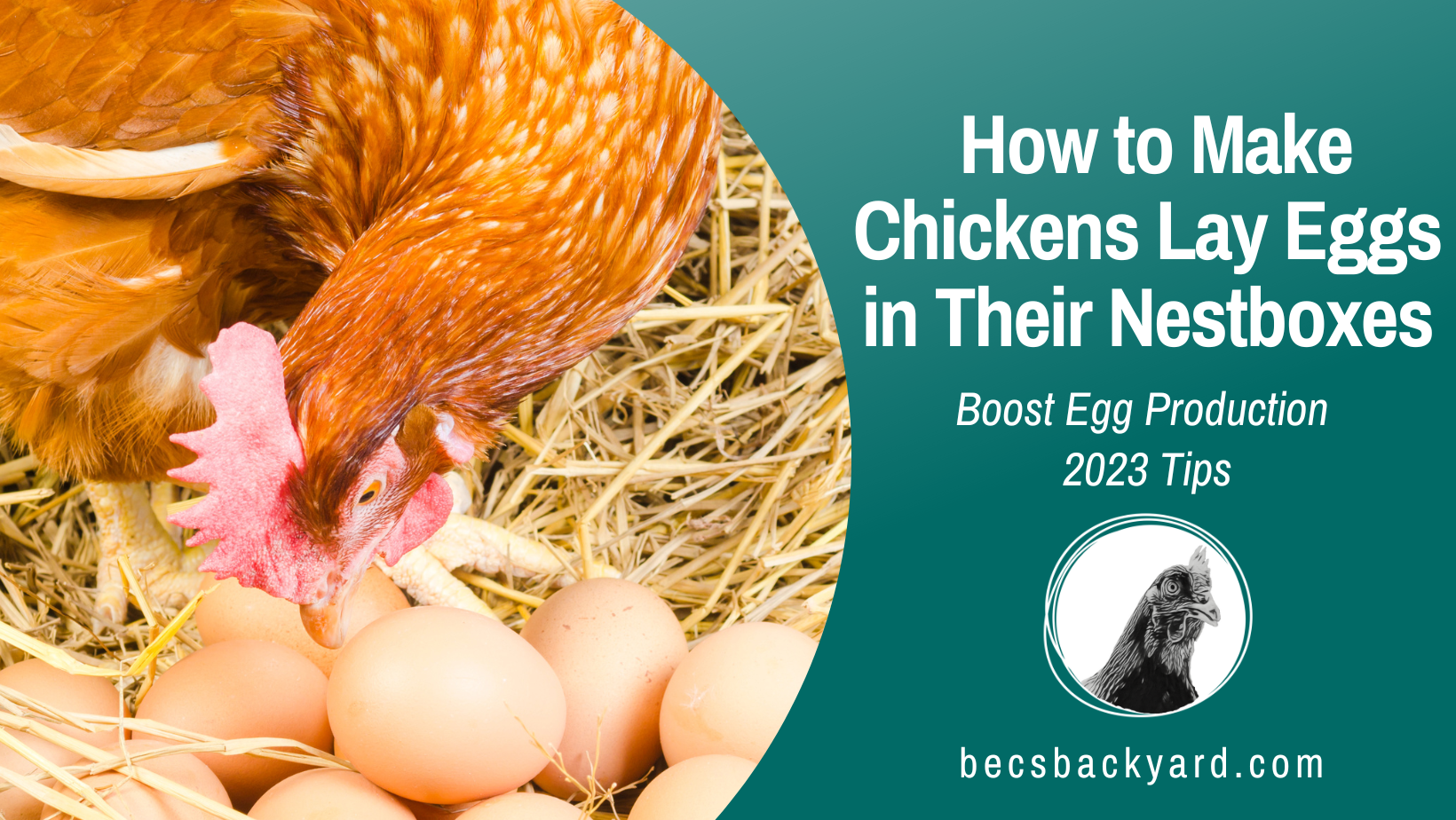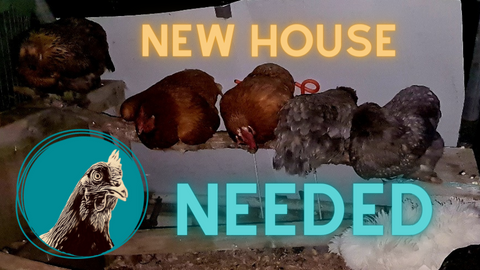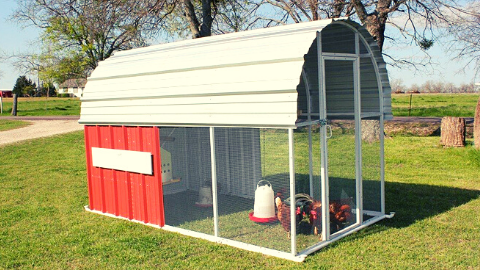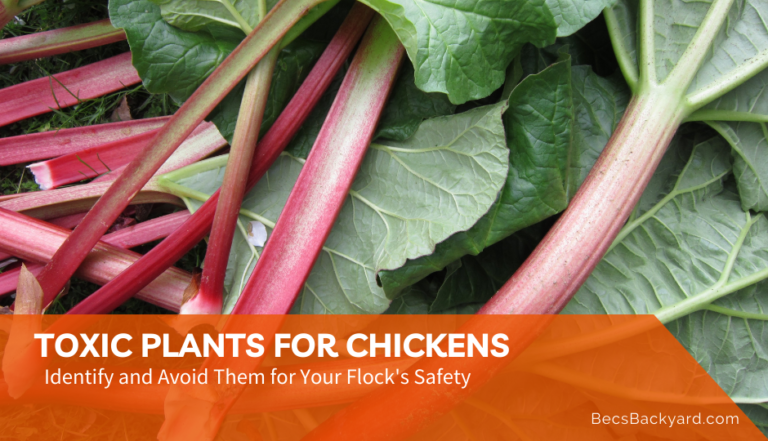Boost Egg Production: How to Make Chickens Lay Eggs in Their Nestboxes

In order to maximize egg production, it is important to create an environment that encourages chickens to lay their eggs in their nest boxes. This post looks at How to Make Chickens Lay Eggs in Their Nestboxes. Chickens naturally have a strong instinct to find a safe and comfortable place to lay their eggs, but sometimes they may need a little extra encouragement. By following a few simple steps, you can help your chickens feel comfortable and secure in their nest boxes, leading to increased egg production.

Importance of Nest Boxes for Egg-Laying
Nest boxes play a crucial role in encouraging chickens to lay eggs in a designated area. Providing a suitable and comfortable environment for egg-laying is essential for both the well-being of the chickens and the ease of egg collection for the poultry keeper.
One of the main reasons why nest boxes are important is that they provide a safe and secure space for hens to lay their eggs. Chickens have a natural instinct to find a secluded and protected area to lay their eggs, and nest boxes fulfill this need. By providing nest boxes, you are giving your chickens a designated space where they can feel safe and comfortable while laying their eggs.
Nest boxes also help to protect the eggs from damage. When chickens lay eggs on the ground or in random places, there is a higher chance of the eggs getting dirty, cracked, or even eaten by other animals. By providing nest boxes, you are ensuring that the eggs are laid in a clean and protected environment, reducing the risk of damage.
Furthermore, nest boxes make egg collection much easier for poultry keepers. When eggs are laid in designated nest boxes, they are all in one place, making it convenient to collect them without having to search for them throughout the coop or yard. This not only saves time but also reduces the chances of missing any eggs.
In addition to these practical benefits, nest boxes also contribute to the overall well-being of the chickens. When hens have a comfortable and secure space to lay their eggs, they are less likely to become stressed or anxious. This can have a positive impact on their overall health and productivity.

Nest boxes are of utmost importance when it comes to encouraging chickens to lay eggs in a designated area. They provide a safe and secure space for hens to lay their eggs, protect the eggs from damage, make egg collection easier for poultry keepers, and contribute to the overall well-being of the chickens. By creating a suitable environment and addressing any potential issues, you can ensure that your chickens love their nest boxes and lay eggs consistently.
How to Make Chickens Lay Eggs in Their Nestboxes: Creating a Comfortable Nest Box Environment
Creating a comfortable nest box environment is crucial in encouraging chickens to lay eggs in their nest boxes. Chickens are naturally inclined to seek out a safe and cozy spot to lay their eggs, and providing them with a suitable nest box will help fulfill this instinct.
Cleanliness
Firstly, it is important to ensure that the nest boxes are clean and free from any debris or droppings. Regularly cleaning the nest boxes will not only maintain hygiene but also make them more inviting for the chickens. Remove any old or broken eggs promptly to prevent them from becoming a deterrent for the hens. It is essential to keep the nest boxes clean to prevent the spread of diseases and parasites. Remove any soiled or dirty bedding and replace it with fresh, clean material. This will also help to maintain a pleasant environment for your chickens.
Size and Design
Next, consider the size and design of the nest boxes. They should be spacious enough for the hens to comfortably enter and move around. A general guideline is to have a nest box that is at least 12 inches square and 12 inches deep. A general rule of thumb is to have 1 nest box per 4-5 chickens – even then you will find that they will queue up waiting for their preferred next box.
Location
The nest box should also be located in a quiet and secluded area of the coop. Chickens prefer privacy when laying eggs, so placing the nest boxes away from high-traffic areas or noisy equipment will help create a calm and peaceful environment. It is also beneficial to provide some form of partition or curtain to further enhance privacy.
Nesting Material
Another important aspect is the box material used in the nest boxes. Straw, wood shavings, or shredded paper can be used as nesting material, however these will need regular cleaning out. Other options that can be washed and reused are also suitable. Ensure that the bedding is clean, dry, and comfortable for the hens.
Choosing the right type of nesting material will depend on your routine. Straw or hay are commonly used and preferred by chickens as they provide a soft and cozy surface for them to lay their eggs on. This material can however tend to retain moisture and should be changed out often. If you are time poor then looking for reusable pads that cushion the egg on it’s short fall from chicken to nest are a great option that are more hygienic and cost effective.
Lighting
Lastly, consider the lighting conditions in the coop. Chickens require a certain amount of light to stimulate egg production. Providing natural or artificial light in the coop can help regulate their laying cycle and encourage them to use the nest boxes. It is also important to consider that the shorter daylight hour months is nature’s way of allowing our feathered friends to have a break. At BecsBackyard we don’t use any artificial lighting and allow the natural daylight hours guide the flocks laying – as it happens the chickens tend to lay through all months except when they are molting.
By creating a comfortable nest box environment, you are providing the chickens with a safe and inviting space to lay their eggs. This will not only increase egg production but also ensure the well-being and happiness of your flock.
Establishing a Routine and Consistency
Establishing a routine and consistency is crucial when it comes to encouraging chickens to lay eggs in their nest boxes. Chickens are creatures of habit, and they thrive on routine. By establishing a consistent schedule, you can help them feel secure and comfortable in their nest boxes, which will ultimately lead to increased egg production.
One important aspect of establishing a routine is to ensure that the nest boxes are clean and inviting. Chickens prefer clean and well-maintained nest boxes, so it is essential to regularly clean out any soiled bedding or debris. This will not only make the nest boxes more appealing to the chickens but also help prevent the spread of diseases.
Another aspect of establishing a routine is to provide a calm and quiet environment for the chickens. Loud noises or sudden disturbances can stress the chickens and discourage them from using the nest boxes. It is important to keep the area around the nest boxes free from any potential disturbances, such as predators or other animals.
Additionally, it is beneficial to establish a consistent feeding schedule for the chickens. Feeding them at the same time each day will help regulate their internal clocks and encourage them to lay eggs in their nest boxes. Providing a balanced and nutritious diet is also essential for optimal egg production.
Furthermore, it is important to collect eggs from the nest boxes regularly. Leaving eggs in the nest boxes for too long can lead to broodiness, where the chickens become more interested in sitting on the eggs and hatching them rather than laying more eggs. By collecting eggs daily, you can prevent broodiness and encourage the chickens to continue laying eggs.
Quick Tips
Once you have set up your nest boxes and created a comfortable environment for your chickens, it is important to regularly monitor and maintain the nest boxes to ensure they remain clean and inviting for your hens. Here are some tips on how to effectively monitor and maintain your nest boxes:
1. Regularly check for cleanliness: It is essential to keep the nest boxes clean to prevent the spread of diseases and parasites. Remove any soiled or dirty bedding and replace it with fresh, clean material. This will also help to maintain a pleasant environment for your chickens.
2. Collect eggs frequently: Make it a habit to collect eggs from the nest boxes at least once or twice a day. Leaving eggs in the nest boxes for too long can encourage broodiness in hens, which may reduce their egg-laying productivity. Collecting eggs promptly also helps to prevent them from getting dirty or damaged.
3. Inspect for damage or wear: Regularly inspect the nest boxes for any signs of damage or wear. Check for loose or broken parts, sharp edges, or any other potential hazards that could harm your chickens. Repair or replace any damaged components to ensure the safety and comfort of your hens.
4. Provide fresh nesting material: As the nesting material in the nest boxes becomes soiled or compacted, replace it . This will help to maintain a clean and comfortable nesting area for your chickens.
5. Address any issues promptly: If you notice any issues or problems with your nest boxes, such as chickens refusing to use them or excessive egg breakage, take immediate action to address the problem. This may involve adjusting the placement of the nest boxes, providing additional nesting material, or addressing any potential sources of stress or discomfort for your chickens.
Encouraging Natural Behaviors and Instincts
Encouraging natural behaviors and instincts in chickens is crucial for getting them to lay eggs in their nest boxes. Chickens have a natural instinct to lay their eggs in a safe and secure location, and by creating an environment that caters to their natural instincts, you can increase the likelihood of them using their nest boxes for egg-laying. If the nest box doesn’t live up to her needs your hen will go looking for a place of her own that you wont know about. Below is Henny Penny who created her nest in the nasturtiums at Becs Backyard, it was 2 weeks before we found that nest and it was full of eggs!
We revamped the nest box for Henny Penny by attaching a material curtain to the entrance to the nest box , and that was enough to get her using the nest box again.

Conclusion
Encouraging chickens to lay eggs in their nest boxes requires creating a comfortable and suitable environment, addressing any potential issues or obstacles, and establishing a routine and consistency. By following these tips and strategies, you can boost egg production and ensure that your chickens love their nest boxes.
Firstly, it is important to create a comfortable nest box environment. This includes providing enough space for the chickens to move around and ensuring that the nest boxes are clean and free from any debris or pests. Additionally, adding soft bedding material such as straw or wood shavings can make the nest boxes more inviting for the chickens.
Secondly, providing adequate nesting material is crucial. Chickens prefer to lay their eggs in a nest that is lined with soft and cozy material. By providing materials such as straw, hay, or shredded paper, you can encourage the chickens to use their nest boxes for egg-laying.
Next, proper nest box placement is essential. Nest boxes should be located in a quiet and secluded area of the coop, away from any disturbances or predators. Placing the nest boxes at a height that is comfortable for the chickens to access is also important.
Addressing potential issues or obstacles is another key aspect. Chickens may avoid using their nest boxes if they are experiencing stress, discomfort, or fear. It is important to identify and address any issues that may be preventing the chickens from using their nest boxes, such as overcrowding, poor lighting, or inadequate ventilation.
Establishing a routine and consistency is crucial for encouraging chickens to lay eggs in their nest boxes. Chickens are creatures of habit, and they are more likely to use their nest boxes if they have a consistent routine and know what to expect. This includes providing a consistent feeding schedule, maintaining a clean and comfortable coop environment, and regularly checking and collecting eggs from the nest boxes.
Lastly, monitoring and maintaining the nest boxes is important for ensuring that they remain clean and inviting for the chickens. Regularly cleaning out the nest boxes, replacing bedding material, and checking for any signs of damage or wear can help maintain a suitable environment for egg-laying.
By following these tips and strategies, you can create an environment that encourages chickens to lay eggs in their nest boxes. Boosting egg production and ensuring that your chickens love their nest boxes will not only benefit you as a chicken owner but also provide a comfortable and stress-free environment for your chickens.







